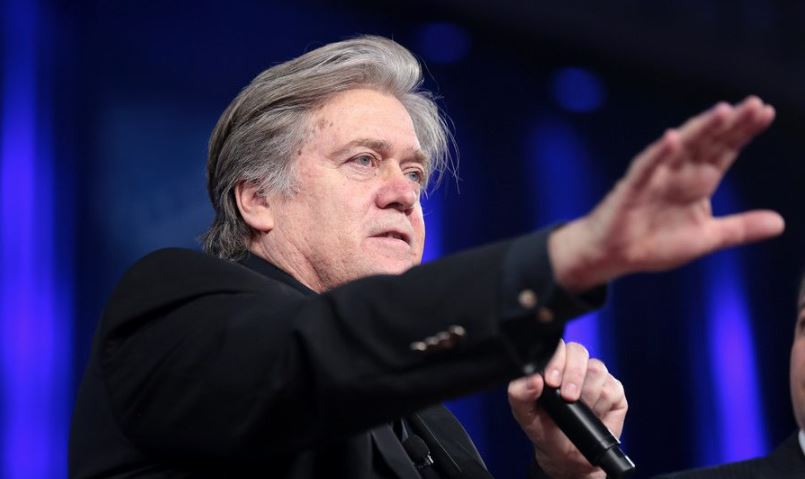Former Trump White House Chief Advisor, Steve Bannon, has made headlines with serious allegations against the Biden-Harris administration, claiming they have unlawfully extended his prison sentence beyond the date mandated by the First Step Act. This law, championed by former President Trump, was designed to reform sentencing laws and reduce mandatory minimum sentences for nonviolent offenses. Bannon posits that his continued incarceration is a politically motivated tactic intended to silence him leading up to the critical 2024 election. His critique specifically targets Vice President Kamala Harris, whom he accuses of a longstanding history of contributing to mass incarcerations, particularly affecting minority communities. Bannon claims that Harris’s policies and actions have alienated key voter demographics, asserting that she has failed to advocate for the interests of minority voters while purportedly favoring illegal immigrants over American citizens.
Having begun a four-month sentence for contempt of Congress at a federal prison in Danbury, Connecticut, Bannon is now advocating for his release under the First Step Act. He argues that he meets the eligibility criteria for early release and that his legal team has filed motions demanding prompt action regarding his status. Bannon’s lawyers highlight the government’s delay in responding to their petition, pointing out it has been over 75 days without a substantive reply. They contend that the court should grant his motion for bail until the Supreme Court makes a ruling, arguing that the Bureau of Prisons is unjustly holding him beyond his legal release date.
During his public statements, Bannon has been particularly critical of Harris, labeling her the “Queen of Mass Incarcerations.” He asserts that her failure to mobilize black and Hispanic voters in critical electoral regions will lead to her downfall in the upcoming election. Citing cities like Philadelphia, Detroit, and Atlanta, Bannon claims that her inaction regarding issues like family reunification for American prisoners and her focus on illegal immigration will come back to harm her politically. His remarks appear to indicate that Harris’s oversight in engaging with these communities could significantly impact her re-election prospects, emphasizing the notion that she has neglected her duties while allegedly favoring illegal migrants.
Bannon’s situation reflects a broader narrative of perceived selective justice, highlighting disparities in how individuals associated with Trump have been treated compared to those connected to Democratic figures. He notes that past incidents, such as former Attorney General Eric Holder’s contempt of Congress resolution, did not lead to the same repercussions he has faced. Bannon suggests that this reflects a politically charged environment where individuals aligned with Trump seem to be subject to harsher judicial scrutiny. This sentiment feeds into a narrative of a post-constitutional era where such disparities are both systemic and targeted.
His previous refusal to comply with the January 6 Committee’s subpoena stemmed from an assertion of executive privilege made by former President Trump, which Bannon has used as a defense for his noncompliance. The protection of executive privilege has historically been a contentious issue, often debated within the contexts of separation of powers and legislative oversight. Bannon’s claims of being targeted for adhering to this privilege further underscore his belief that he is a victim of political persecution by the current administration.
Compounding public concern about his incarceration, Bannon’s daughter, Maureen Bannon, has taken to social media to voice her outrage over her father’s situation, amplifying claims that the Biden-Harris administration is making unlawful detentions. Her statement reinforces the claim of politically motivated imprisonment and reflects growing familial and public sentiment that questions the integrity of current political and judicial processes. Bannon’s allegations and his daughter’s advocacy illustrate not only a personal struggle but also a broader battle about the intersection of justice, politics, and the rights of individuals linked to past administrations.

